Snowboarding is an exhilarating winter sport that combines elements of surfing, skateboarding, and skiing.
It's a fun way to enjoy the mountain slopes, but for beginners, one of the most pressing questions is: how long does it take to learn to snowboard?
In this comprehensive guide, we'll explore the factors that influence the learning process and provide practical insights to help you hit the slopes with confidence.
Key Takeaways:
- The time it takes to learn snowboarding varies, but most people can grasp the basics in just a few days with proper instruction.
- Several factors, including previous board sports experience and fitness level, can affect your learning speed.
- Consistent practice and the right instruction are crucial for progressing from a complete beginner to an intermediate or expert snowboarder.
Understanding the Snowboarding Learning Curve
Learning to snowboard is an exciting journey, and the learning curve can be steep for some. For complete beginners, getting comfortable on the board and mastering the basics of balance and control are the first steps.
With snowboard lessons from a qualified instructor, you can avoid developing bad habits and learn how to snowboard faster.
The Role of Previous Experience
If you have experience with other board sports like skateboarding or surfing, you may find that you can pick up snowboarding more quickly.
The skills and balance required for these sports can translate well to the snow, potentially reducing the time it takes to feel confident on a snowboard.
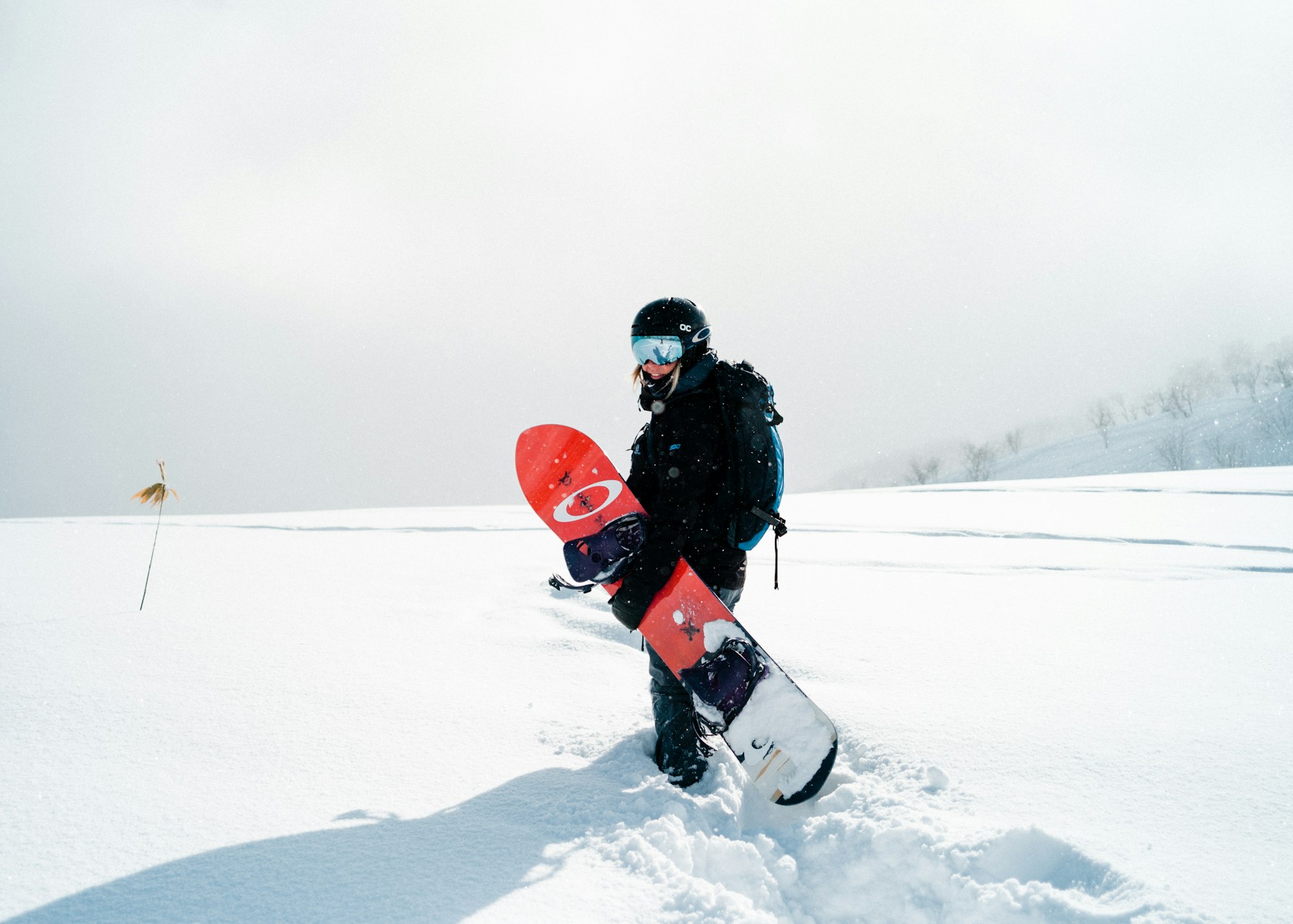
Importance of Fitness and Core Strength
Snowboarding is a physical activity that requires whole-body engagement, particularly core strength.
The fitter you are, the easier it will be to learn snowboarding. Good fitness levels can help you maintain control and balance on the slopes, which are crucial for making carved turns and linking turns.
Choosing the Right Equipment
Having the right equipment is essential when learning to snowboard. The right board, boots, and bindings can make a significant difference in your ability to learn and progress.
Make sure to get gear that's suited to your ability level and the conditions you'll be riding in.
The First Few Days on the Slopes
For most people, the first few days of snowboarding involve getting used to the feel of the board and learning the basics of stopping and turning.
Snowboard lessons on the bunny slope will help you get the hang of these fundamental skills before you tackle the chair lift and more challenging runs.
Snowboard Lessons: A Wise Investment
Investing in snowboard lessons with a qualified instructor can dramatically improve your learning speed.
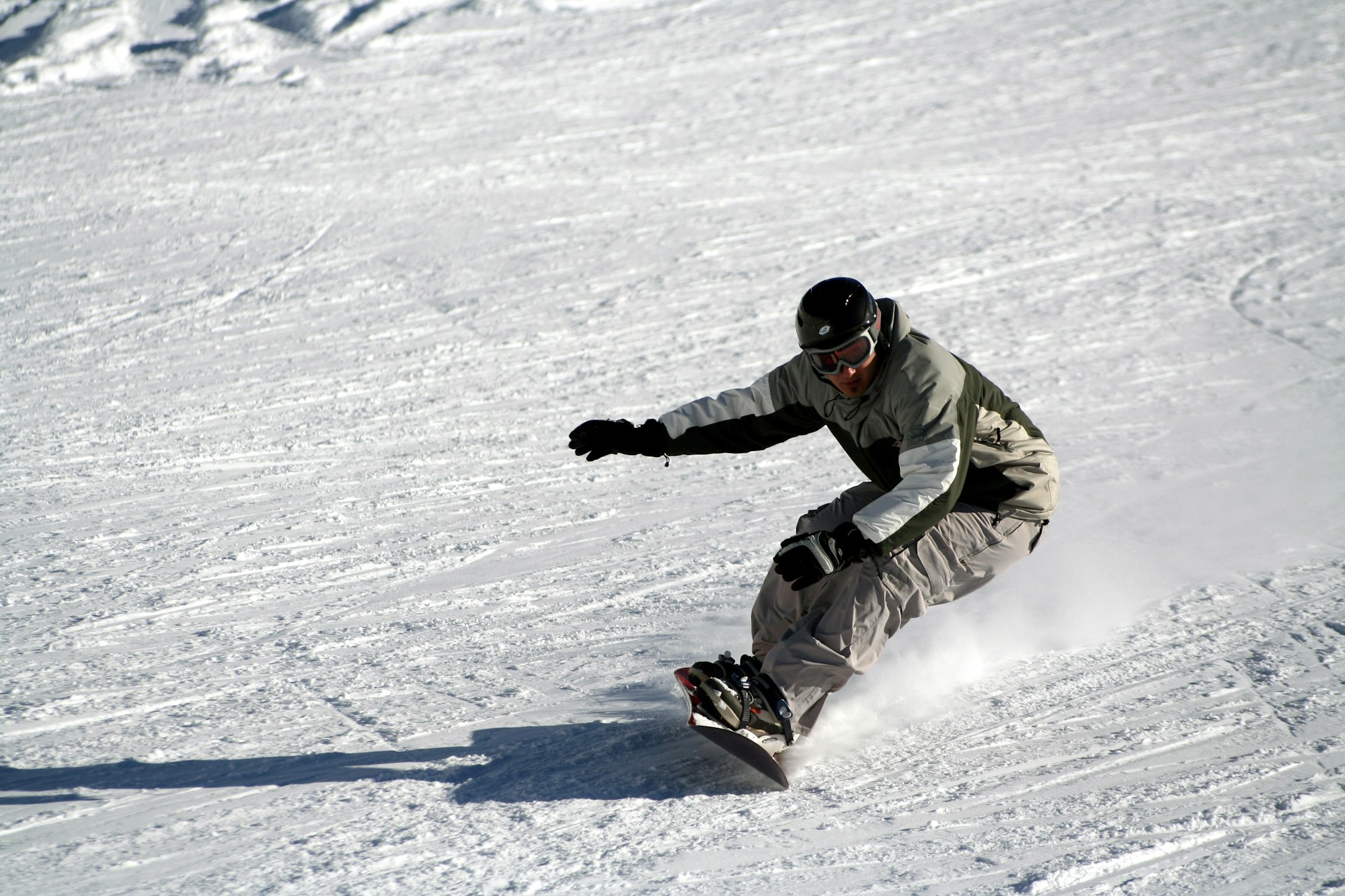
Instructors can provide personalized feedback and tips to help you learn faster and avoid common pitfalls that can slow down your progress.
Practice Makes Perfect
Like any new skill, practice is key when learning to snowboard. The more time you spend on the slopes, the quicker you'll improve.
Try to practice regularly, as long breaks between sessions can hinder your progress and force you to relearn certain skills.
The Impact of Snow Sports Exposure on Snowboard Learning
Have you ever wondered if dabbling in other snow sports can give you a leg up when learning to snowboard? It's not uncommon for those who have spent just a few hours on skis to find themselves more comfortable with the idea of sliding on snow.
Skiing and snowboarding share a similar environment and require some of the same balance and coordination skills.
If you've already conquered the ski slopes, you might find that your body intuitively understands how to distribute weight and maintain control, which can be a significant advantage when transitioning to a snowboard.
However, it's important to note that while some skills may transfer, skiing and snowboarding are distinct disciplines. A ski stance is typically more forward-facing while snowboarding demands a side-on position.
This means that even if you're at the same level in skiing, you'll still need to adapt to the unique demands of snowboarding.
But don't let that discourage you! Many snowboard instructors appreciate students with a background in other snow sports, as they often demonstrate a quicker grasp of the basics, such as how to link turns and navigate the slopes.
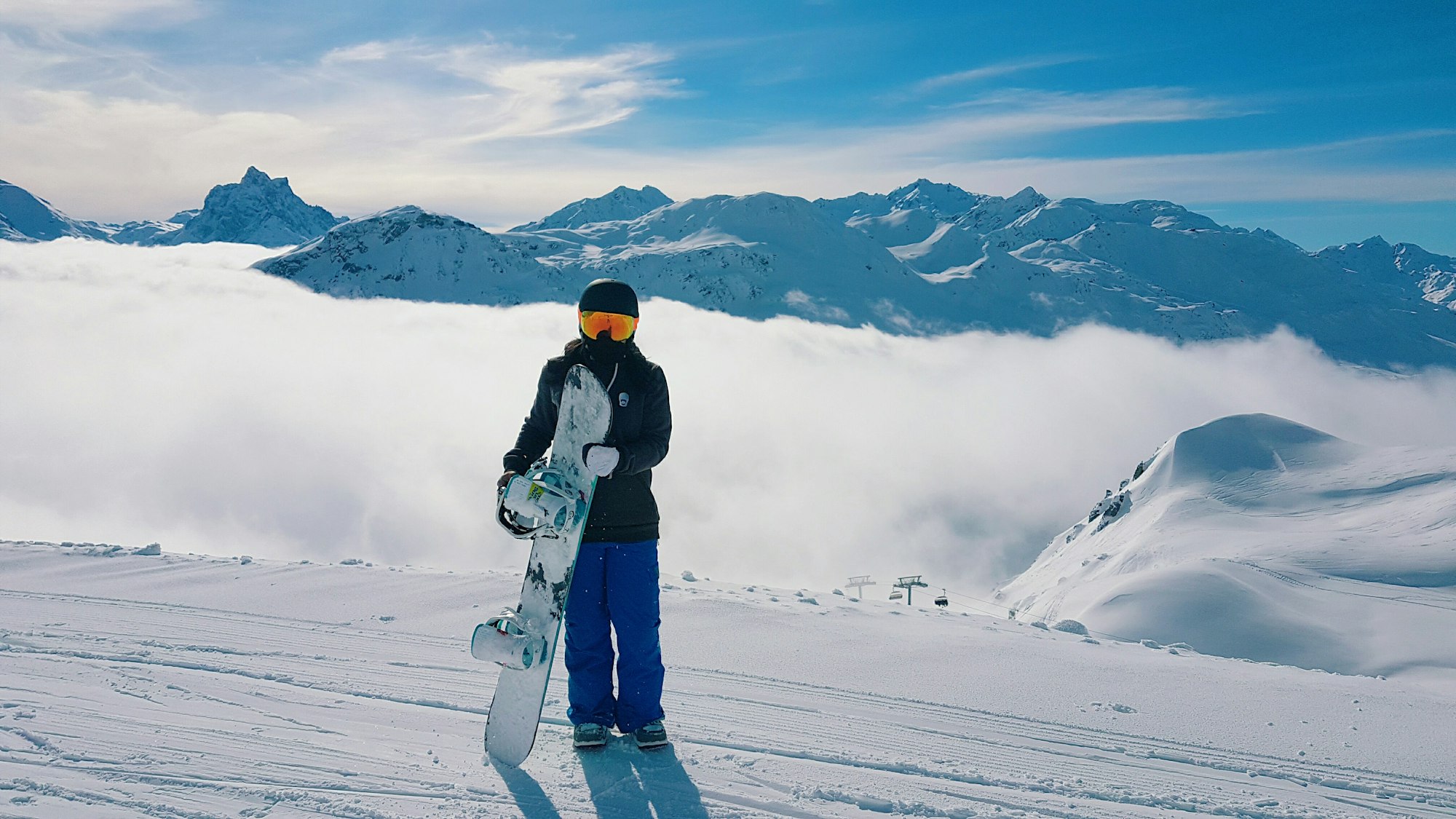
Maximizing Your Progress with a Snowboard Instructor
When it comes to snowboard learning, how much effort you put into your practice sessions can make a significant difference. But effort alone isn't the key to mastering the slopes quickly.
Guidance from a qualified snowboard instructor can exponentially increase your learning speed.
A good instructor will not only teach you the correct techniques from the start but will also provide personalized feedback, helping you to snowboard fast and efficiently.
They can spot and correct any errors in your form, ensuring that you're using your whole body effectively.
Moreover, a snowboard instructor can tailor lessons to your specific needs, allowing you to progress at your own pace while still challenging you to push your boundaries.
They can help you understand the mechanics of how to link turns, control your speed, and navigate different types of terrain.
Whether you're a complete beginner or looking to refine your skills to reach the next level, investing in snowboarding lessons is a surefire way to enhance your experience on the slopes.
Remember, the point isn't just to learn—it's to learn correctly and safely, setting a solid foundation for all your future snowboarding adventures.
Factors Affecting Your Learning Speed
Several factors can influence how long it takes to learn to snowboard. These include your natural ability, fitness level, determination, and the quality of instruction you receive.
Understanding these factors can help you set realistic expectations for your snowboarding journey.
From Bunny Slope to Black Diamond
Progressing from the bunny slope to more advanced runs is a thrilling part of the learning process.
With consistent practice and guidance, you can move from a beginner to an intermediate level, where you'll start to ride with more speed and confidence.

The Importance of Patience and Persistence
Learning to snowboard requires patience and persistence. It's normal to fall and face challenges along the way. Staying motivated and focused on your goals will help you overcome these hurdles and continue improving your skills.
Avoiding Bad Habits Early On
One of the benefits of taking snowboard lessons is that a qualified instructor can help you avoid developing bad habits. These habits can be hard to break and may hinder your ability to progress to more advanced snowboarding techniques.
When Will You Reach Expert Status?
Reaching expert status in snowboarding is a long-term goal that requires dedication and a lot of practice. For those who are committed to the sport and practice regularly, achieving an advanced level can take an entire season or more.
Snowboarding as a Lifelong Sport
Snowboarding is a sport that you can enjoy for a lifetime. Whether you're just starting or aiming for a snowboarding career, the key is to have fun and stay warm while continuously improving your skills and pushing your limits.
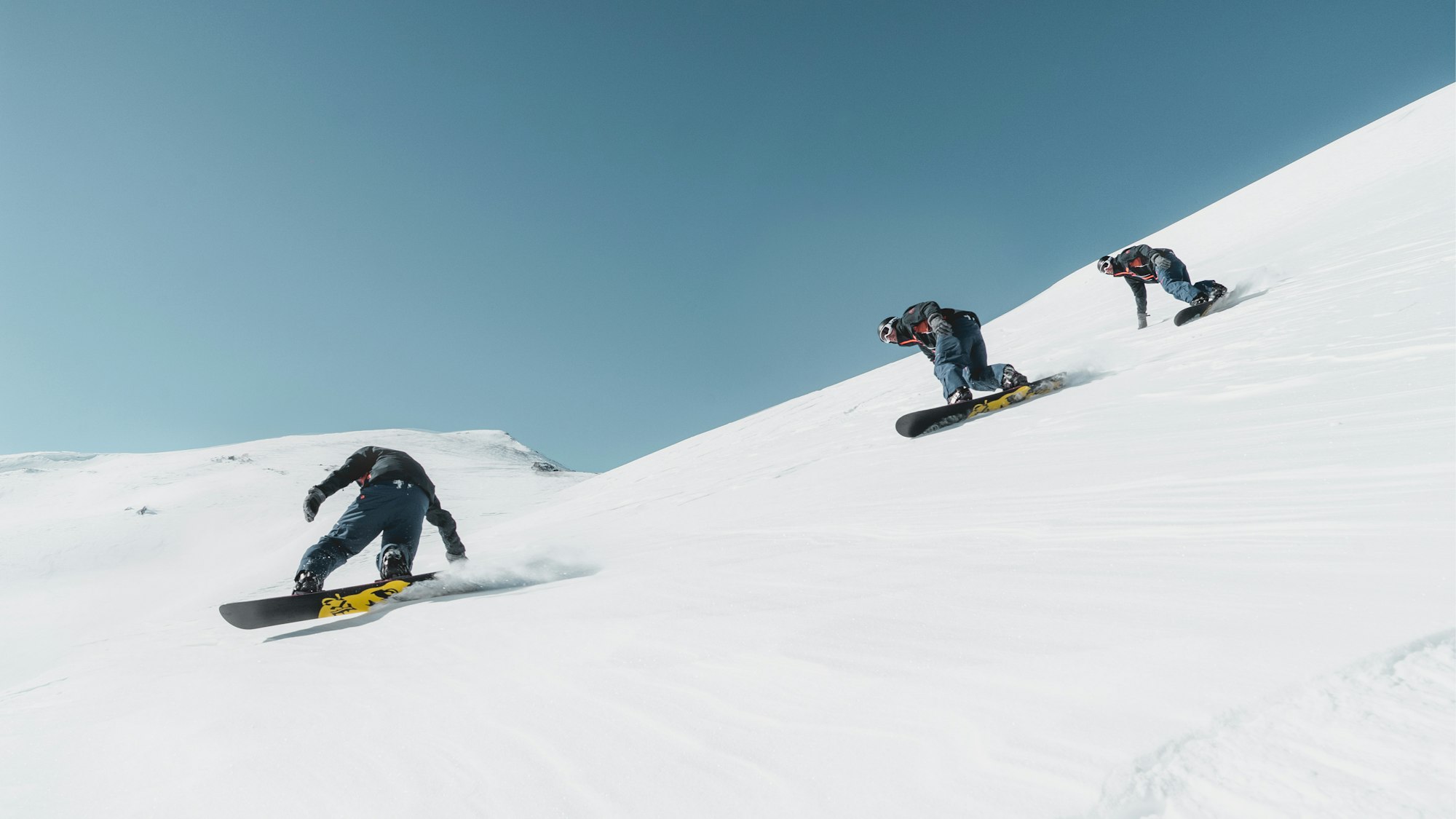
Tips to Learn How to Snowboard Faster
To learn how to snowboard faster, focus on getting the right equipment, taking lessons, and practicing as much as possible. Also, work on your fitness and core strength to improve your balance and control on the board.
Embracing the Snowboarding Lifestyle
Snowboarding is more than just a sport; it's a lifestyle. As you learn and progress, you'll become part of a community of riders who share a passion for the mountains and the thrill of riding.
Some Final Thoughts
Learning to snowboard is a unique experience that varies for everyone. While it's possible to learn the basics in just a few days, reaching an intermediate or expert level can take a few weeks to an entire season, depending on many factors.
The key to success is patience, practice, and proper instruction. Remember to have fun and embrace the snowboarding lifestyle as you progress on your journey.
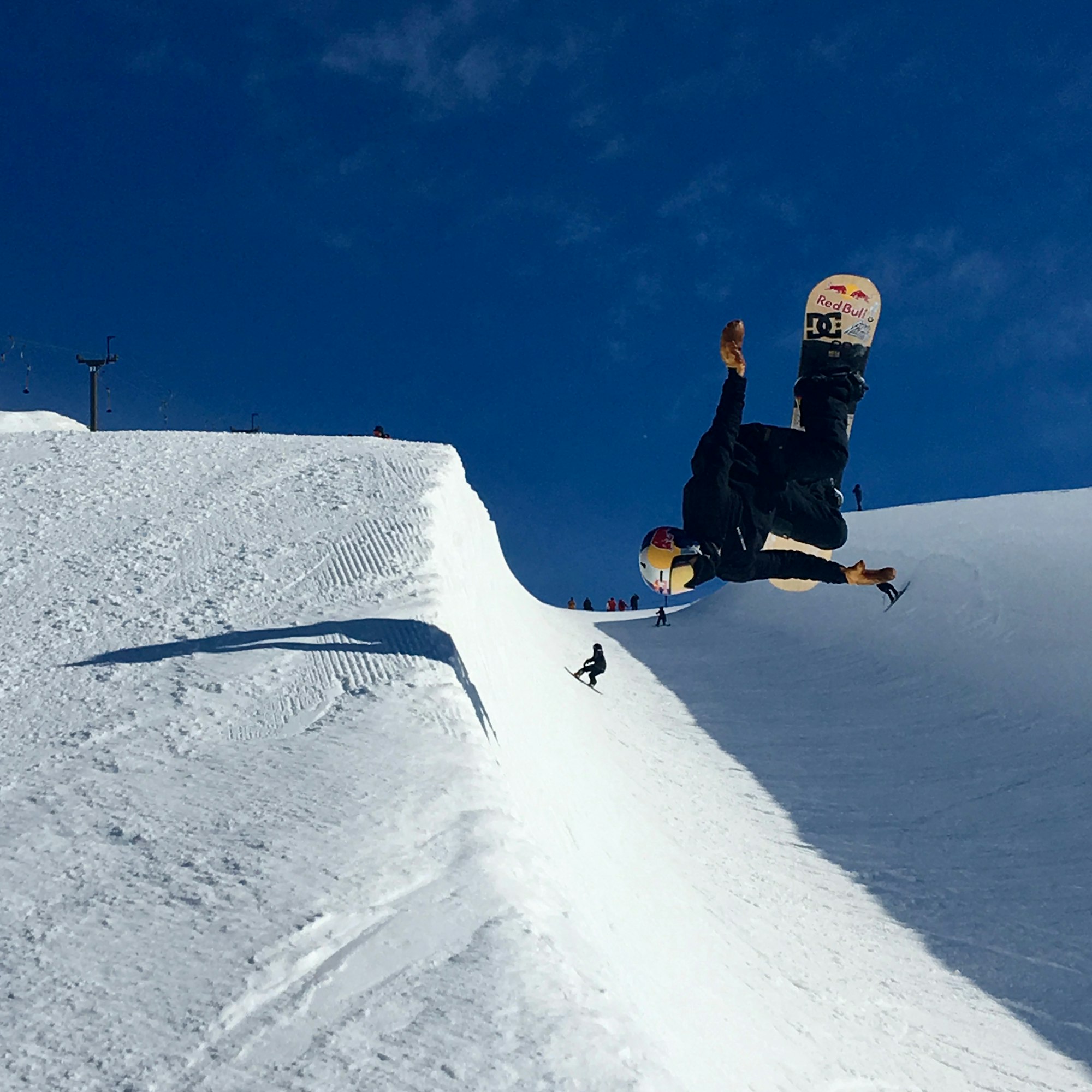
FAQ's
Can I learn snowboarding in one day?
While you can learn some basics in one day, becoming proficient will take more time. Most people need at least a few days to feel comfortable on a snowboard.
Are board sports harder to learn than skiing?
This can be subjective and depends on the individual. Some find snowboarding more challenging at first due to the different balance and control required, but others may pick it up quickly, especially if they have experience with other board sports.
How often should I take snowboard lessons?
It's beneficial to start with lessons on your first day and continue until you can confidently navigate beginner slopes. After that, occasional lessons can help you refine your skills and tackle more advanced techniques.












Member discussion